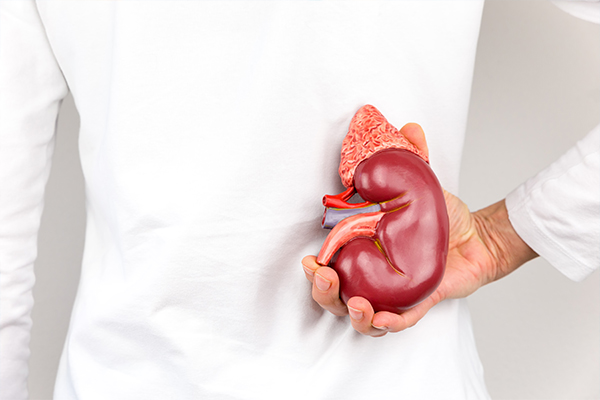In this article:
Antibiotics are one of modern medicine’s greatest assets. They have saved the lives of countless people and changed the course of human history.

Unfortunately, along with their amazing benefits, some drawbacks have also been seen with the increased use of antibiotics.
What Are Antibiotics?
An antibiotic is a synthetic or nonsynthetic substance that has the ability to reduce or eliminate bacterial growth both within and on the body to treat or prevent infections. This medication can be administered orally, topically, or by injection. (1)(2)
Why Are Antibiotics Considered Harmful for the Body?
Antibiotics have become lifesavers for many and decreased the burden of many infectious diseases, but they bring with them adverse effects. Many of these adverse effects have been known for a while, but some are just beginning to be realized as scientific discoveries grow more complex.
With the burgeoning knowledge of the gut microbiome in the last 10–20 years, it is noted and there are many papers written on how antibiotics can alter the gut microbiome. (3) Many of the adverse side effects of antibiotics are related to the interaction between the gut microbiome and antibiotics.
There has been a global surge (more than 65%) in the use of antibiotics between 2000 and 2015, which has led to more reported cases of their side effects. They account for most emergency department visits for kids below the age of 18 years and nearly one out of every five emergency department visits in general.
Here are some common adverse effects of antibiotics. (4)
1. Diarrhea

One of the most common side effects of antibiotics is diarrhea, which was found to affect nearly 5%–35% of all those who take such medication. (5)
One of the main reasons for this is that antibiotics “carpet bomb” all of the bacteria in your intestines, including the good ones.
The killing of the so-called good bacteria by antibiotics disrupts the balance of good versus bad bugs and allows the bad bugs such as Clostridium difficile to grow and overtake the intestines. (6) This can lead to potentially fatal diarrhea, especially in older adults.
Oftentimes, younger kids who take antibiotics will develop a less severe form of diarrhea, and this can be easily controlled by changing the antibiotics by your physician.
2. Nausea and vomiting
Nausea and vomiting are commonly associated with antibiotic use, so much so that the FDA lists nausea as an adverse effect in the majority of package inserts for approved medications. The prevalence is approximately 2%–5% in the general population. (7)
The exact mechanisms of action by which antibiotics produce nausea and vomiting are currently unknown, but these can be seen as normal reactions to medication because the body may perceive antibiotics as a possibly noxious substance.
One of the best ways to help eliminate the adverse effects of nausea and vomiting is to take antibiotics with food. Doctors often advise against taking antibiotics on an empty stomach.
It is important to read the package insert or speak with the pharmacist regarding whether an antibiotic should be taken with or without food and if there’s any type of food that needs to be avoided while taking the said antibiotic.
3. Vaginal yeast infections
Vaginal yeast infections are often caused by an overgrowth of yeast secondary to an imbalance of bacteria versus yeast in the vagina. It is hypothesized that the balance of the normal vaginal flora can be altered, which may change the pH of the vagina, resulting in an increased risk of vaginal yeast infections.
The type and duration of antibiotics used can also play a role in the risk of getting a yeast infection while or after using antibiotics.
Some women run a higher risk of contracting a yeast infection while taking antibiotics, and they will likely know it and ask the doctor for a prescription for one tablet of Diflucan to take after the course of antibiotics is completed.
4. Allergic reactions

Allergic reactions to antibiotics are another common adverse effect seen with the overuse of antibiotics. Every year, there are almost 150,000 emergency room visits secondary to allergic reactions to antibiotics.
These reactions can be mild in the form of annoying but nonlethal rashes, nausea, vomiting, and itching. However, true allergic reactions with anaphylaxis can lead to potentially lethal blistering rashes, swelling of the face and throat, and even cardiovascular collapse. (8)
Most people today who tell healthcare providers that they are “allergic” to penicillin are actually not, but maybe just had a mild nonsevere reaction as a child. It is estimated that more than 90% of patients who believe they are allergic actually are not.
It behooves people to drill down and really figure out if they have a true “allergy” to penicillin or if they just had a bad reaction to the antibiotics – because penicillin is still one of the cheapest and most effective antibiotics used today, and many of the alternative antibiotics have even worse side effects.
5. Weakened immunity
More than 70% of your immune system is found in the gut. Anything that alters the normal balance of the gut can also alter the immune system’s normal function, making you more susceptible to suffering from opportunistic infections. (9)
As mentioned above, antibiotics “carpet bomb” all the bacteria in your gut, killing not only the bugs that the antibiotics are trying to kill, but also killing an enormous amount of the good bacteria.
Antibiotics also thin the complex and protective mucus layer shielding the inside lining of your intestines, which may lead to an increased amount of intestinal permeability, thus allowing “foreign invaders” to get into your bloodstream, possibly contributing to an increased risk of inflammation and infection.
A couple of simple “hacks” to help avoid this include taking a probiotic for up to 6 months after completing the course of antibiotics and keeping the duration of antibiotics to the absolute bare minimum.
It’s also recommended that you increase prebiotic food intake after the course of antibiotics as well. This will provide the microbiota with the nourishment they need to reboot the immune system.
6. Cancer risk
Colorectal cancer is the third leading cause of cancer in the United States. The many risks of colorectal cancer include a lack of physical activity, alcohol consumption, a low-fiber diet, a high-processed-food diet, and tobacco use – and now antibiotic use in adulthood can also be attributed to an increased risk of colorectal cancer.
In fact, K. Voskarides’ 2022 paper in the journal Evolution, Medicine, and Public Health states, “More than 10 studies have confirmed the association of antibiotic overuse with colorectal cancer.” (10)
Again, it is hypothesized that a disturbance in the gut microbiota (the normal bugs living in your gut) may lead to an increased risk of colon cancer. Although antibiotics can be lifesaving, this is one more reason that they should be used sparingly and only when absolutely needed.
The cause of cancer is often multifactorial, but this study shines a light on how the gut microbiota influences our health, for good and bad.
7. Harmful to kidney function

For anyone active in the healthcare field, it is common knowledge that antibiotics can alter and even wreak havoc on kidney function. In fact, oftentimes, part of the plan of care by the healthcare providers is to “avoid nephrotoxic agents.”
Not all antibiotics impair kidney function – some are worse than others, particularly aminoglycosides. These drugs usually have the ending “-cin” such as gentamycin and amikacin. However, kidney damage is also multifactorial.
Administering antibiotics when dehydrated, when critically ill, or in conjunction with other medicines may worsen the deleterious effects they have on the kidneys.
Doctors are usually extra cautious in prescribing medications, especially antibiotics, to people with kidney disease. With normal healthy kidney function, everyday antibiotics likely will not cause acute kidney damage, but in people with kidney disease, even popular and relatively benign antibiotics such as amoxicillin and ciprofloxacin (two very common antibiotics) can damage their kidneys. (11)
People with kidney disease must take smaller doses of antibiotics than people with healthy kidneys, and your doctors will note this in your chart.
If you do have chronic kidney disease, make sure that if you go to the ER, you let the attending provider know you have the condition so they can adjust the dose of medications appropriately.
8. Inner ear problems
Ototoxicity (damage to inner ear structures such as the cochlea and vestibule) can lead to significant hearing loss and even deafness if severe. Many occupational hazards/exposures can lead to other toxicity as well as exposure to the aminoglycoside antibiotic family.
The first case of hearing damage with aminoglycoside treatment was noted in 1944, and the prevalence of toxicity from aminoglycoside treatments can be as high as 20%–50%. (12)
The most common complaints seen with ototoxicity are dizziness and tinnitus (a constant ringing in the ears). The mechanism of this action is believed to be the destruction of mitochondria and release of oxidative enzymes and free radicals in the ear cells.
Fortunately, there are a couple of otoprotective countermeasures available including N-acetylcysteine (a very powerful antioxidant), which can be taken by mouth, as well as steroids.
But the best autoprotective treatment is antibiotic stewardship – only using antibiotics when absolutely needed – and maintaining a robust immune system to avoid bacterial infections leading to an increased need for antibiotic use.
9. Reduced effectiveness of birth control pills
Antibiotics can hamper the effectiveness of birth control pills. The expected rate of failure for oral contraceptive pills is approximately 1 pregnancy per 100 woman-years (100 women take the pills perfectly for 1 year).
When women must undergo a course of antibiotics, it is surmised that, by multiple mechanisms, this may reduce the efficacy of oral contraceptive pills (OCPs). Although broad-spectrum antibiotics are thought to reduce the effectiveness of OCPs, statistical data are difficult to come by.
However, mechanisms thought to decrease the efficacy of OCPs include the increased excretion of fecal and urinary estrogens, increased liver detoxification pathways, and decreased bacterial deconjugation of estrogen in the intestines leading to alterations of plasma concentrations of estrogen.
Although it is difficult to ascertain exactly how much antibiotics reduce the effectiveness of birth control pills, according to a BMJ Evidence-Based Medicine study, ”compared with control medicines, unintended pregnancies were seven times more commonly reported with antibiotics.” (13)
The authors went on to conclude that “This evidence suggests there is an interaction of antibacterial drugs with hormonal contraceptives, which can potentially impair the effectiveness of the contraceptives.”
However, there isn’t enough compelling evidence to conclusively prove that broad-spectrum antibiotics reduce the efficacy of oral contraceptives. Despite that, many journals and articles recommend that women on birth control pills who must take antibiotics should use a backup method for contraception.
10. Serious problems (Alzheimer’s disease, seizures)
It has recently been hypothesized that Alzheimer’s disease may be associated with dysbiosis in the intestinal microbiome.
Why Are Antibiotics Used?

Antibiotics play a major role in keeping people healthy and avoiding infectious diseases that can be life-altering and even fatal.
Apparently, antibiotics have been used for thousands of years unknowingly because civilizations did not know that infections were caused by bacteria. There is evidence that ancient Egyptians applied moldy bread to infected wounds in the past with good results.
Up until the 20th century, infectious diseases caused by bacteria, such as diarrhea and pneumonia, were the number one cause of death in the world.
What Precautionary Measures Should Be Taken When Taking Antibiotics?
The judicious use of antibiotics is warranted, which is to take them only if and when needed.
Antibiotics only treat certain bacterial infections and do not work on viruses (the main cause of the common cold). In fact, antibiotics are not needed for some common bacterial infections including most sinus infections, many ear infections, bronchitis, and even strep throat. (14)
Many people are concerned if they have mucus that is yellow or green, but the relevance of the color of mucus has been debunked. Just because your mucus/phlegm is thick, yellow, or green, it does not mean you have an active bacterial infection and hence does not mean you need to take antibiotics.
Sometimes the best treatment is boosting your immune system, getting adequate sleep, and drinking plenty of water.
If your doctor does prescribe you antibiotics, it is likely necessary, and they should be taken exactly as prescribed. This means that you must take the medication in the correct dosage and complete the entire course for it to be truly effective in eradicating the infection.
And finally, do not share your antibiotics or take someone else’s antibiotics.
What Are Antibiotic-Resistant Bacteria?
With the overprescribing and overuse of antibiotics in both humans and animals (80% of antibiotics used in America go to livestock), antibiotic resistance is one of the greatest public health challenges of our time. Antibiotic resistance could lead to nontreatable infections and diseases that could wreak havoc on populations and societies.
Antibiotic resistance happens when the antibiotics designed for certain bacteria are no longer effective. The mechanism behind this is the bacteria’s built-in survival mechanisms giving them an advantage with the ability to change their DNA to be antibiotic resistant.
Antibiotic resistance poses a major threat because infections caused by antibiotic-resistant germs can be impossible to treat and even fatal. For these reasons, again being careful in your use of antibiotics plays a key role in public health and safety.
Final Word
Antibiotics are one of modern medicine’s greatest marvels, yet they do come with some challenges. Luckily, the human body is designed to survive and has built-in mechanisms to return to homeostasis (a balanced state of well-being) often without the need for antibiotics.
Over the course of the last 25 years, the interplay between antibiotics and gut microbiota is proving to have consequences on long-term health. For this reason, antibiotics should be avoided as much as possible and only used when in dire need. (15)
Antibiotics are not meant to be given out like candy for common colds and ear infections as this will only increase antibiotic resistance. There are many natural antibiotic-like compounds found in herbal medicine that may not have the untoward side effects of standard antibiotics.
The best defense for not needing antibiotics is to maintain a healthy and robust lifestyle, which leads to a healthy and robust immune system.
- Was this article helpful?
- YES, THANKS!NOT REALLY


